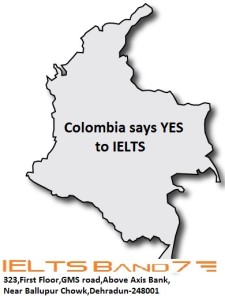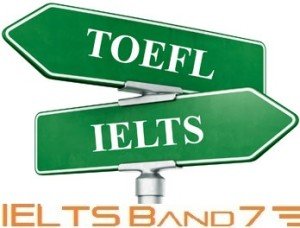Hardwork is a key to success
HARDWORK
That hard work is a key to success is a well-known adage. Parents, teachers as well as others guide a child to work hard so that he can achieve good scores. Though a little bit of luck plays a positive role but I believe that hard work is the key to success. In fact if only luck is to be considered, no one would work but just wait till their luck shines up.
But this is not the case. Today we see that technology has improved to such an extent that a person can have a lunch in Paris and a dinner in New York on the same day. There lies great contribution from people like the Wright brothers and Henry Ford to invent these means of transportation, which were the result of their hard-work and great efforts. If these people had waited for the D-day probably we could still have been using fire and wood to cook instead of using electrical ovens, and the globalization would not have taken effect.
Today a young individual has the potential to do something and crave in reaching a particular acme. Whether your luck prevails or not condition being hard work and efforts, which will pick you up where ever you are.
Feel free to call for suggestions and queries.
IELTS Band 7 Dehradun
Near Ballupur Chowk, Dehradun
email: info at ieltsband7.com
Colombia says YES to IELTS
Slowly but surely IELTS finds its way into the Colombia – more universities joined the list of many others already recognizing IELTS in the Colombia.
Colombia has opened its borders to IELTS. People’s Colombia to recognize IELTS – surely others will follow and it’s just a matter of time. Approximate 30+ organizations and universities accepting IELTS. There is the list of some of them.
– Corporación Universitaria Lasallista
– Escuela de Ingeniería de Antioquia
– Escuela de Ingeniería Julio Garavito
– Politécnico Grancolombiano
– Politénico Jaime Isaza Cadavid
– Pontificia Universidad Javeriana, Bogota
– Pontificia Universidad Javeriana, Cali
– Universidad Javeriana
– Universidad Católica Popular de Risaralda
– Universidad CEIPA, Barranquilla
– Universidad CEIPA, Medellín
– Universidad Colegio Mayor de Nuestra Señora del Rosario
– Universidad de Ibagué
– Universidad de La Gran
– Universidad de la Sabana
– Universidad de La Sabana
– Universidad de La Salle
– Universidad de Los Andes
– Universidad de Nariño
– Universidad de San Buenaventura Medellin
– Universidad del Atlántico
– Universidad del Norte
– Universidad del Rosario
-Universidad del Valle
– Universidad Distrital
– Universidad EAFIT
– Universidad Externado de
– Universidad Konrad Lorenz
– Universidad Militar Nueva Granada
– Universidad Nacional de
– Universidad Pontificia Bolivariana, Medellín
– Universidad Pontificia Bolivariana, Montería
– Universidad Pontificia-Bolivariana
– Universidad San Martin
– Universidad Santo Tomás
– Universidad Sergio Arboldea
Feel free to call for suggestions and queries.
IELTS Band 7 Dehradun
Near Ballupur Chowk, Dehradun
email: info at ieltsband7.com
Differences b/w IELTS and TOEFL
Major Differences between the IELTS and TOEFL
Reading
TOEFL – You will have 3 – 5 reading selections of twenty minutes each. Reading materials are academic in nature. Questions are multiple choice.
IELTS – 3 reading selections of twenty minutes each. Materials are, as in the case of the TOEFL, related to an academic setting. There are multiple type questions (gap fill, matching, etc.)
Listening
TOEFL – The listening selection very different from the IELTS. In the TOEFL, you will have 40 – 60 minutes worth of listening selections from lectures or campus conversations. Take notes and respond to multiple choice questions.
IELTS – The largest difference between the two exams is in listening. In the IELTS exam there are a wider variety of question types, as well as exercises of differing lengths. You will answer questions as you move through the listening selection of the test.
Writing
TOEFL – Two written tasks are required on the TOEFL and all writing is done on the computer. Task one involves writing a five paragraph essay of 300 to 350 words. Note taking is important as the second task asks you to take notes from a reading selection in a text book and then a lecture on the same topic. You are then asked to respond using notes by writing a 150 – 225 word selection integrating both the reading and listening selection.
IELTS – The IELTS also has two tasks: the first a short essay of 200 – 250 words. The second IELTS writing task asks you to look at an infograhic such as a graph or chart and summarize the information presented.
Speaking
TOEFL – Once again the speaking section differs greatly between the TOEFL and the IELTS exams. On the TOEFL you are asked to record responses on the computer of 45 – 60 seconds to six different questions based on short descriptions / conversations. The speaking section of the test lasts 20 minutes.
IELTS – The IELTS speaking section lasts from 12 to 14 minutes and takes place with an examiner, rather than a computer as on the TOEFL. There is a short warm up exercise consisting mainly of small talk, followed by a response to some sort of visual stimulus and, finally, a more extended discussion on a related topic
Feel free to call for suggestions and queries.
IELTS Band 7 Dehradun
Near Ballupur Chowk, Dehradun
email: info at ieltsband7.com



